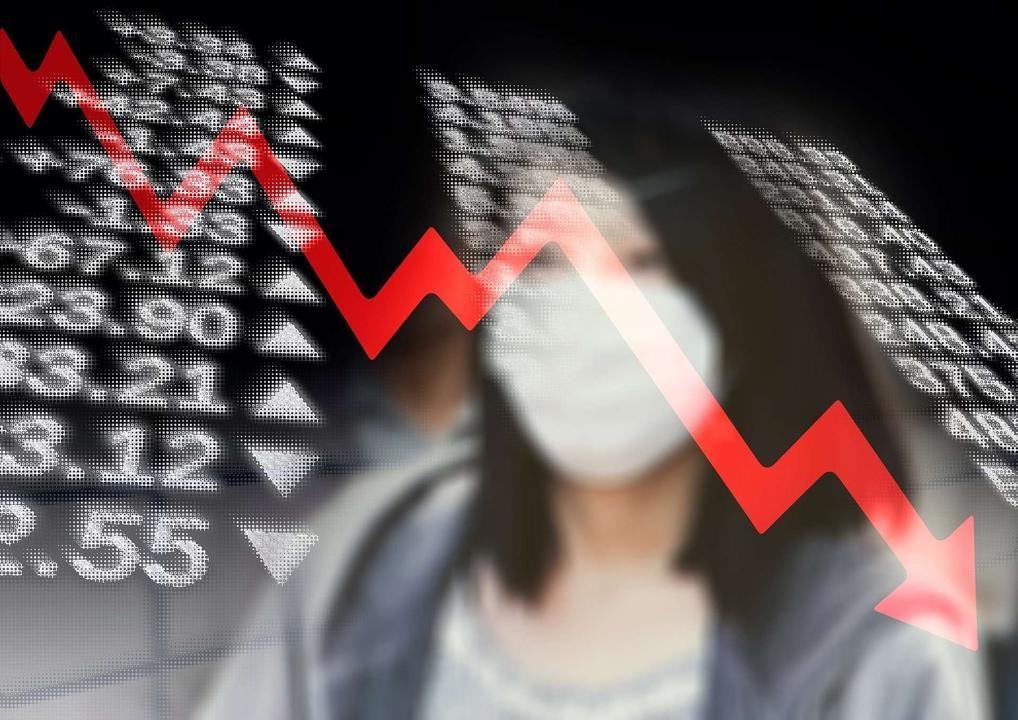Contasult: consecuencias de la gestión del COVID-19 y contradicciones

Llega la hora de mirar con Lupa las consecuencias de la gestión del COVID-19, sus irregularidades y contradicciones.
Durante la gestión de la crisis sanitaria provocada por la pandemia originada por el COVID-19, que ha desencadenado una nueva crisis económica, el Gobierno de España acordó una serie de medidas encaminadas a paliar los efectos de la crisis en empresas, autónomos, trabajadores, etc.
No obstante, finalizado el Estado de Alarma, desde el punto de vista profesional y una vez transcurrido un tiempo que hemos considerado prudencial, toca analizar y mirar con lupa las consecuencias que la gestión del COVID-19 ha provocado con sus irregularidades y contradicciones. A modo de resumen podemos establecer los siguientes ámbitos en los que las hemos detectado incidencias:
- Materia laboral: a los autónomos acogidos a la prestación por cese de actividad (CATA), la Administración les siguió cobrando la cuota de autónomo, a pesar del reconocimiento a percibir la prestación. Se les indicó que se les devolvería la cuota y siguen, algunos de ellos, esperando dicha devolución, que no llega, con los perjuicios que ello les ha causado. En otros casos, la devolución ha llegado tarde y sin la liquidación de los intereses por la demora en el pago.
- Materia fiscal: la Administración Tributaria con plazos suspendidos por el Estado de Alarma, ha tenido en algunos casos por impagadas las deudas aplazadas y fraccionadas, pasando directamente a dictar providencias de apremio para ejecutar embargos, tal y como si fuese el propio administrado, el que hubiese incumplido su obligación. Lo cierto es que la Administración Pública, siempre ha carecido de medios suficientes, circunstancia que se ha visto agravada con la irrupción de la crisis; la Administración no ha contado con medios suficientes para adaptar sus sistemas informáticos a estos tiempos. No es de recibo, que si la Administración en cumplimiento de normativa estatal, suspende el pago de tributos fraccionados y aplazados, no refleje dicha circunstancia en sus sistemas informáticos, provocando que sean los propios ordenadores los que al “detectar la falta de pago de las obligaciones tributarias aplazadas y/o fraccionadas” inicien de oficio las actuaciones necesarias tendentes a ejecutar bienes del obligado tributario, cuando éste no ha tenido opción: los plazos han estado suspendidos y no ha sido su voluntad no cumplir con sus obligaciones tributarias; encontrándonos ahora con procedimientos de apremio en reclamación de deudas con el incremento de los intereses y recargos que la Administración entienden se han devengado.
Por otra parte, existen otras situaciones que si bien, no han tenido su origen en la crisis del COVID-19, merecen especial mención y atención:
En el ámbito hipotecario, recientemente el Tribunal de Justicia Europea en Sentencia de 16/07/2020 ha confirmado la doctrina jurisprudencial sentada por el Tribunal Supremo a partir de las Sentencias del Pleno de 23/01/2019. Así, se reconoce que en caso de hipoteca, los gastos notariales generados por el otorgamiento de la escritura, corresponden por mitad al prestamista y al prestatario, los gastos de inscripción registral corresponden al banco y el Impuesto de Actos Jurídicos Documentados corresponde abonarlos al prestatario.
En el ámbito laboral, el Tribunal Supremo ha avalado la tarifa plana a los autónomos societarios. Este problema, en su día afectó a un importante número de trabajadores autónomos que no pudieron acceder a la denominada “tarifa plana”, ya que la Tesorería General de la Seguridad Social solo permitía aplicarse las bonificaciones a aquellos nuevos autónomos que lo eran en calidad de personas físicas, es decir, excluía de las bonificaciones a aquellos autónomos que lo eran por ser socios de sociedades de capital con control efectivo sobre las mismas.
Toda estas situaciones, entendemos son completamente irregulares y contradictorias, generando el pago a la Administración de ingresos indebidos con los consecuente perjuicios irrogados a personas físicas, autónomos, consumidores, empresas y trabajadores.
En Grupo Contasult, estamos de tu lado, y en contra de cualquier desigualdad o atropello, nuestro objetivo es prestar un asesoramiento integral a cualquier persona que lo necesite; además, somos especialistas en la solicitud de ingresos indebidos frente a la administración y recursos frente a sus actos, ya son muchos los clientes que han requerido nuestro asesoramiento por encontrarse en alguna de estas situaciones.
The time has come to carefully examine consequences of management of COVID-19, its irregularities and contradictions.
During the management of the health crisis caused by the pandemic brought about by COVID-19, which has triggered a new economic crisis, the Spanish Government agreed a series of measures aimed at mitigating the effects of the crisis on companies, the self-employed, workers, etc.
However, at the end of the State of Emergency, from a professional point of view and after a period we considered reasonable, it is time to analyse and carefully examine the consequences that the management of COVID-19 has caused with its irregularities and contradictions. By way of summary, we can establish the following fields where we have detected incidents:
- Labour matters: the self-employed workers who were eligible for the cessation of activity (CATA), continued to be charged the self-employment quota by the Administration, despite the recognition of being entitled to receive the aid. They were informed that the quota would be returned to them and some of them are still awaiting the refund, which has not arrived, with the damage this has caused them. In other cases, the refund has arrived late and without the payment of interests for the delayed payment.
- Tax matters: The Tax Administration with deadlines suspended due to the State of Emergency, has had the debts postponed and fractioned classed as unpaid in some cases and has moved to directly issue court orders to carry out embargoes, as if it was the tax payer who had breached their obligation. It is true that the Public Administration has always lacked sufficient resources, which has been exacerbated by the emergence of the crisis; the Administration has not had the sufficient resources to adapt its computer systems to this time. It is unacceptable, that if the Administration, in compliance with state legislation, suspends the payment of taxes that are fractioned and deferred, does not reflect this situation on its own computer system, which means that it is the computers themselves that “upon detecting the lack of payment of deferred and/or fractioned tax obligations” officially begins the necessary actions aimed at enforcing assets from the tax payer when the latter has had no choice: the deadlines have been suspended and it has not been their wish to breach their tax obligations; we now find ourselves with enforcement procedures for claiming debts with an increase in interests and surcharges that the Administration believes have been yielded.
On the other hand, there are other situations which, although not caused by the COVID-19 crisis, are worth paying special attention to and a special mention:
With regard to mortgages, the European Court of Justice in the Ruling of 16/07/2020 confirmed the jurisprudential doctrine established by the Supreme Court in the Rulings of the Plenary on 23/01/2019. Thus, it is acknowledged that in the case of mortgages, notary costs caused by the granting of the deed, are split half and half between the lender and the borrower respectively, the registry entry costs are paid by the bank and Stamp Duty is paid by the borrower.
In terms of work, the Supreme Court has endorsed a flat rate for incorporated self-employed workers. At the time, this problem affected a significant number of self-employed workers who were unable to obtain the so-called “flat rate”, as the Social Security Fund only made it possible to apply the discounts to the new self-employed workers who were so as individuals, that is to say, it excluded from the discounts the self-employed workers who were shareholders of capital companies with effective control over them.
We believe that all of these situations are completely irregular and contradictory, generating the payment to the Administration of undue income with the consequent damage caused to individuals, the self-employed, consumers, companies and workers.
At Grupo Contasult, we are by your side, and against any inequality or violation, our aim is to provide comprehensive advice to anyone who needs it; also, we are specialists in requesting undue income from the administration and appeals against its acts, as many clients have required our guidance when they have found themselves in any of these situations.


